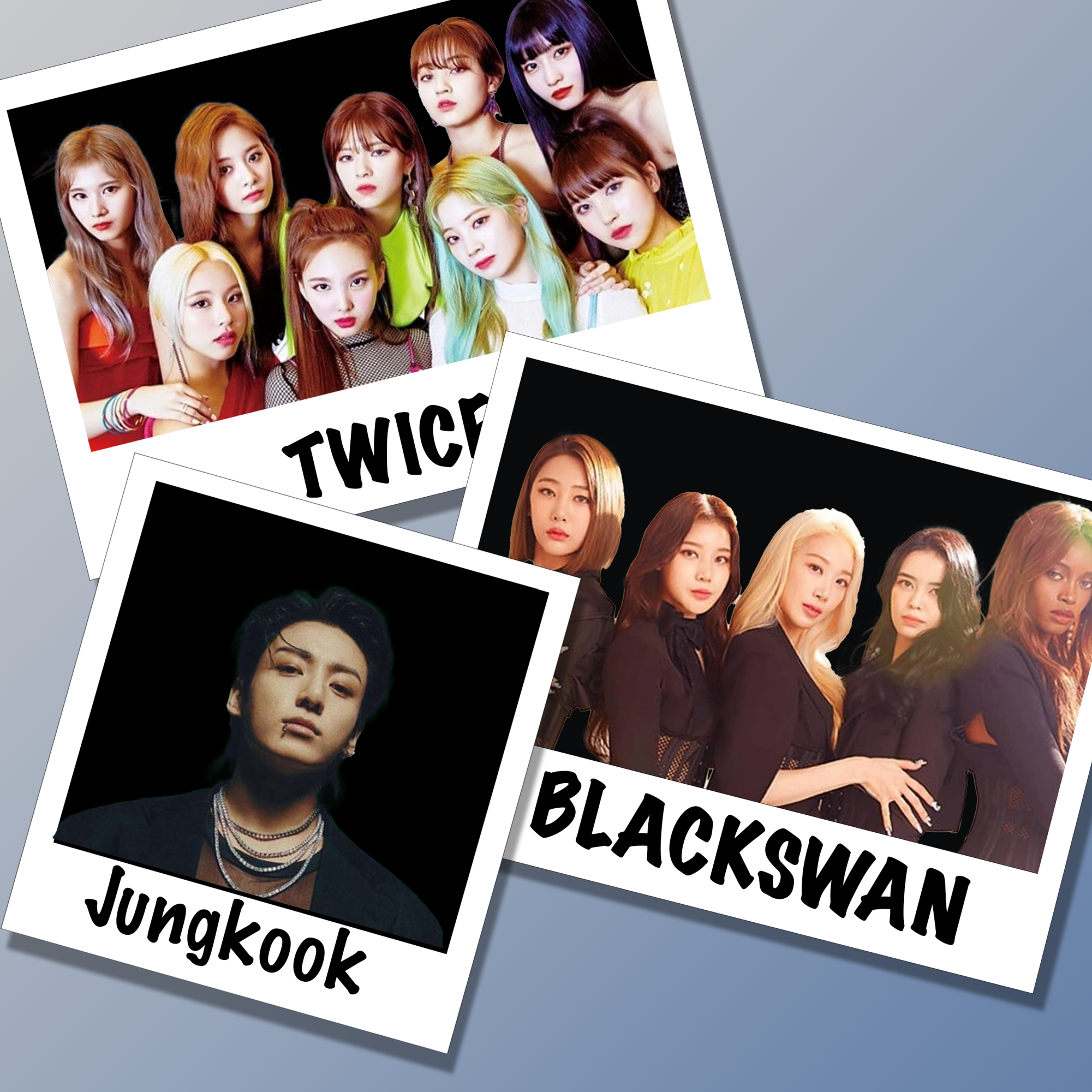The “K” in K-pop stands for Korean. However, as Western culture continues to pervade Korean music, the “K” might as well be dropped from the title.
Korean popular music, commonly referred to as K-pop, first emerged in the U.S. with PSY’s explosive “Gangnam Style” in 2012. We’ll never forget waving our arms to that iconic “holding the reins” dance move. But PSY was only a trickle of the massive Korean wave soon to take over the West.
Just one year after “Gangnam Style” was released, the Bangtan Boys, or BTS, debuted under Big Hit Entertainment. Although initially obscure in the industry, the seven-member boy group rose to No. 6 on the Heatseekers Albums chart in 2015 with the electrifying “I Need U” from the EP “The Most Beautiful Moment in Life, Part 1.” Since their first chart ranking, BTS has outshone numerous American artists, including Taylor Swift and Justin Bieber. It suffices to say that they live up to their title as the “Kings of K-pop.”
Through breakout acts like BTS, K-pop has found a voice in Western pop culture. EXO, ITZY, Seventeen and countless other groups have garnered attention from impressive fan bases across the globe, particularly in America. In fact, consumers overseas continually dominate K-pop’s fan culture. According to an analysis of YouTube data conducted by Korea JoongAng Daily, Japan, India, Mexico and the United States account for the majority of online views for BTS, BLACKPINK, Stray Kids and TWICE-related content.
As a Korean-American obsessed with K-pop, the impact and influence Korean culture has accumulated over the years tremendously excites me. However, as the genre appeals more and more to its foreign fan bases, K-pop has been Westernized to the point of being no different from regular American pop music. If K-pop doesn’t return to its Korean roots, it will drop from the top charts by losing the cultural elements that initially hooked massive audiences.
The Westernization of K-pop is not limited to releasing fully English tracks. The themes of the lyrics, musicality, collaborations and even the ethnicity of the band members all contribute to the Americanization of Korean music. As this phenomenon persists, K-pop may sink deeper into its steady decline.
Bang Si-Hyuk, the chairperson of Hybe Corporation, recently disclosed the unsettling drop in K-pop album sales and stock numbers. Despite the booming success of the Korean entertainment industry over the past few years, K-pop’s enterprise has notably slowed, even entering negative values in some markets.
Furthermore, recent album sales have demonstrated a crippling turn for the worst. South Korean customs data indicates that K-pop album exports in 2022 exceeded $230 million, achieving a 4.8 percent increase from the previous year. Yet, this rate falls concerningly behind the 62.1 percent growth in 2021, as well as the 82.6 percent rise in 2020.
Clearly, K-pop has plunged into an alarming slump. Many factors can bring about the downfall of a powerful industry, but the full-force Americanization of Korean music is the central catalyst of K-pop’s upsetting plummet.
The precise moment K-pop transformed into a Western entity is difficult to discern. However, BTS played an undeniably critical role. After releasing their English singles “Dynamite,” “Butter” and “Permission to Dance,” BTS reached fans overseas on unimaginable levels. Other K-pop groups have attempted to achieve the same effect by following a similar all-English format. TWICE’s “MOONLIGHT SUNRISE,” Seventeen’s “Darl+ing” and FIFTY FIFTY’s “Cupid” are among the myriad of English “Korean” tracks.
In addition to recording English songs, an impressive number of Korean artists have collaborated with American musicians. There’s “Kiss and Make Up” by BLACKPINK and Dua Lipa, “Boy With Luv” by BTS and Halsey, “Idol” by BTS and Nicki Minaj, “HANGOVER” by PSY and Snoop Dogg and “Left and Right” by Jungkook and Charlie Puth. Surprisingly, K-pop collaborations with American performers are far more common than tracks featuring other Korean artists. If that doesn’t scream Westernization, I don’t know what does.
The “K” in K-pop is undoubtedly losing its relevance, especially as new K-pop groups debut with little to no Korean members. This is no protest against diversity, but bands with fewer Korean members tend to be less successful than bands representing Korean nationalities. BLACKSWAN, a four-member girl group with Senegalese-Belgian, American, Brazilian-German and Indian members, is a prominent example. Although deeply loved by their smaller fan base, BLACKSWAN (four awards) has achieved little success in comparison to Stray Kids (fifty-four awards) or aespa (thirty-four awards), though all three groups debuted in the same year.
As a longtime K-pop fanatic, the recent turn Korean music has taken to conform to Western entertainment severely agitates me. Despite my appreciation for fresh releases and fourth-generation groups like NewJeans and LE SSERAFIM, the all-English tracks and progressively Western themes are watering down the appeal of K-pop.
The conversion of Korean to English lyrics can’t be discussed without mentioning Jungkook’s latest album “Golden.” This was a highly anticipated solo release from one of BTS’s most popular members, but the execution was highly disappointing. Each track was composed entirely of English lyrics, and nothing set the music apart from a mediocre American pop album.
I’m an avid BTS fan and devoted follower of Jungkook, but “Golden” crossed a line with the Westernization of Korean music. Every track lacks the Korean flair that makes K-pop distinctive and unique, replacing it with the hyper-sexualized tide of American entertainment. Upon my first listen of “Somebody,” the album’s eighth track, I barely recognized Jungkook in the song. His typically soft aura had been replaced by the atmosphere of an American trap artist. Despite “Somebody” being one of my favorite songs on “Golden,” I find more joy in listening to Jungkook’s Korean singles, like “Still With You” or “Stay Alive.”
Jungkook is not the only artist that has fallen to Americanization. TWICE, a nine-member girl group under JYP Entertainment, now consistently releases tracks with English as the dominant language. Their visual concepts have also aligned with edgy Western fashion styles and lyrical messages surrounding sexuality. Prior to this Western wave, TWICE tracks were written with little to no English and revolved around the beloved aegyo concept, which encompasses the intensely cute, flirtatious mannerisms adopted by Korean celebrities.
I’m not the only fan who’s taken note of this unfortunate shift in K-pop. On a recent online forum, Korean fans complained that the new Western K-pop cannot be differentiated from American pop music. K-pop has lost its originality both musically and lyrically, as well as its outstanding cultural factor. One fan commented that the diluted fashion and themes are exact copies of American pop culture.
Even as a major consumer of K-pop products and content, I have been turned off from supporting Korean music with the trend of Americanization. The “K” in K-pop is there for a reason. Nevertheless, if the Korean aspect of K-pop fails to preserve its relevance in the face of Westernization, fans will fall out of love with the genre just as quickly as they fell in.





Derricka • Sep 13, 2024 at 9:56 pm
Kim your article now has me feeling like I need to go back and listen to my BTS archive! Since you’ve researched the data trends I see where you’re coming from. I will say there is something about listening K-pop sung in the Korean language. How the language tones, poetic flow of lyrics and music intertwine establish the feel or vibe of K-pop. For me though, I’ve always felt K-pop leans towards western music because it borrows from African-American music genres of soul, hip-hop, & R&B. In later years I hear latin & African influences making the music even more international. I would agree with you that K-pop doesn’t need to move toward adapting or adopting western culture to be successful in the western market. I do feel that it has always carried western influences though.
Anna • Apr 17, 2024 at 3:35 pm
How are you
Marrant • Dec 11, 2023 at 2:35 pm
And when skz go to western award shows with a Korean songs that use the play on Korean syllables and their music is using typical kpop genre mix they are shaded for giving kpop a bad name…
Also aespa and skz are from the big 3. There is no comparison between the 3. If anything black swan having a black member keeps them afloat despite mediocre music. Aespa is 1/4 Chinese, skz are 1/4 Australian, blackpink is only 1/2 Korean, idk how many exo members were Chinese. A healthy mix seem to be a recipe for sucess.